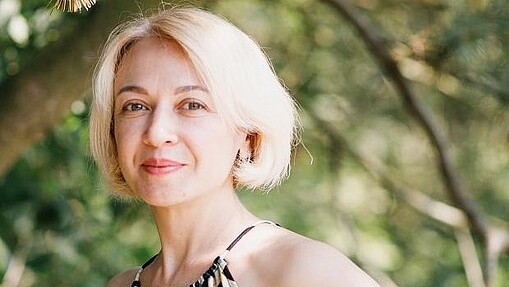Frau Tropmann-Frick, can you tell us briefly about the two projects?
The DERECKA project is working to establish a PhD programme in Kyrgyzstan in order to make the system there consistent with other countries and international standards. This is desired politically as it would mean that academics would remain in the country rather than pursuing more attractive educational and research conditions in the West. The current doctoral training continues to be based on the system of the former Soviet Union. This means it is extremely comprehensive and, based on our standards, more closely resembles the German Habilitation. This educational path is generally unattractive for junior researchers because it is too long. Through DERECKA we are looking at which elements of our doctoral training would transfer well to Kyrgyzstan.
The primary focus of the DigEco project is to further develop the curricula and create new programmes for Master’s studies in economics at universities in Tajikistan and Ukraine. The aim is to add aspects of digitalisation to the existing teaching and study content – for example, data science, data analytics and design thinking, as well as methods such as agile project management.
How did you become involved in the project?
I attend conferences often as part of my research activities. I’ve gotten to know many of the partners I now work with at these conferences, where we’ve discussed our work. When they were designing the consortia as part of the project proposal development, these colleagues remembered me and approached me. So my involvement in the projects is the result of my personal contacts.
Both projects involve capacity-building, primarily in the Central Asian region. What makes it interesting for you – both as a European partner and personally – to be involved in these projects? What has your experience been like? How has the intercultural exchange functioned?
I find it very enriching to get to know other cultures. Through my project work I am continually learning new things. For example, I am very impressed by the project partners’ politeness, and also their great flexibility and adaptability: everyone really wants to learn and asks critical questions. A readiness for change is evident. And I find it exciting to experience how much a project can achieve – for example, in terms of capacity-building, structural change towards a modern education system, and ultimately the strengthening of academia. I experience a lot of gratitude and a great appreciation for everything we are doing.
The projects are part of the Erasmus+ programme to support capacity-building projects and are thus anchored more in the area of education. Do your projects also generate links to research?
Definitely! DERECKA directly strengthens research, but DigEco, too, strengthens elements related to research – for example, publishing at the international level or exchange on good academic practice. Through the projects in the educational area we also learn about the partners’ research areas and can create linkages to them. I also get a lot of inspiration for my own research.
Will you be involved in project proposals for the upcoming funding period – perhaps even as a project coordinator?
I’d be very happy to take part as a project partner again! Not as a coordinator at the moment because of my current workload – but definitely in two or three years!
Thank you very much for the interview!
Note: There will be no call for capacity-building projects in 2021 as part of the new Erasmus+ programme generation (2021–2027). The next opportunity to submit a proposal will likely be in early 2022. According to the German Academic Exchange Service (DAAD), the call for proposals will be published in fall 2021.

